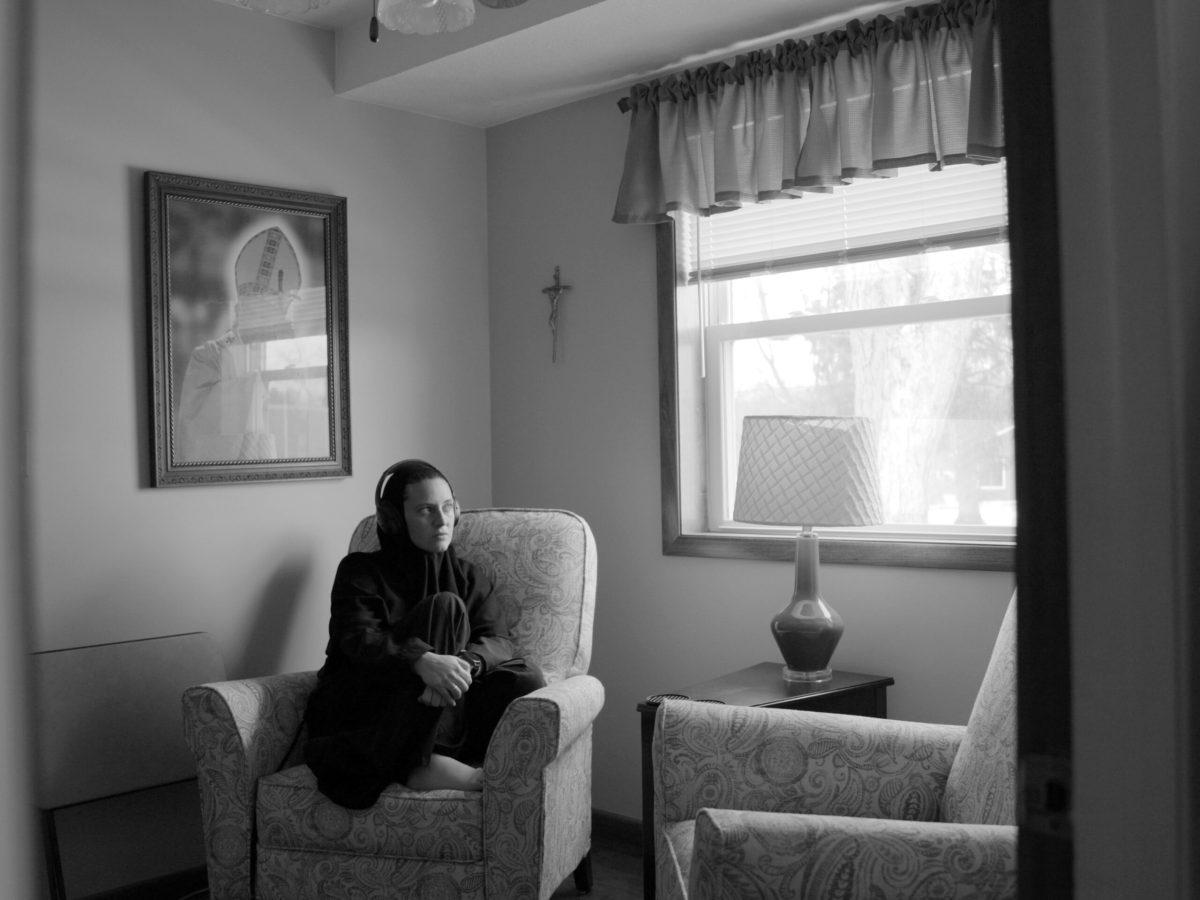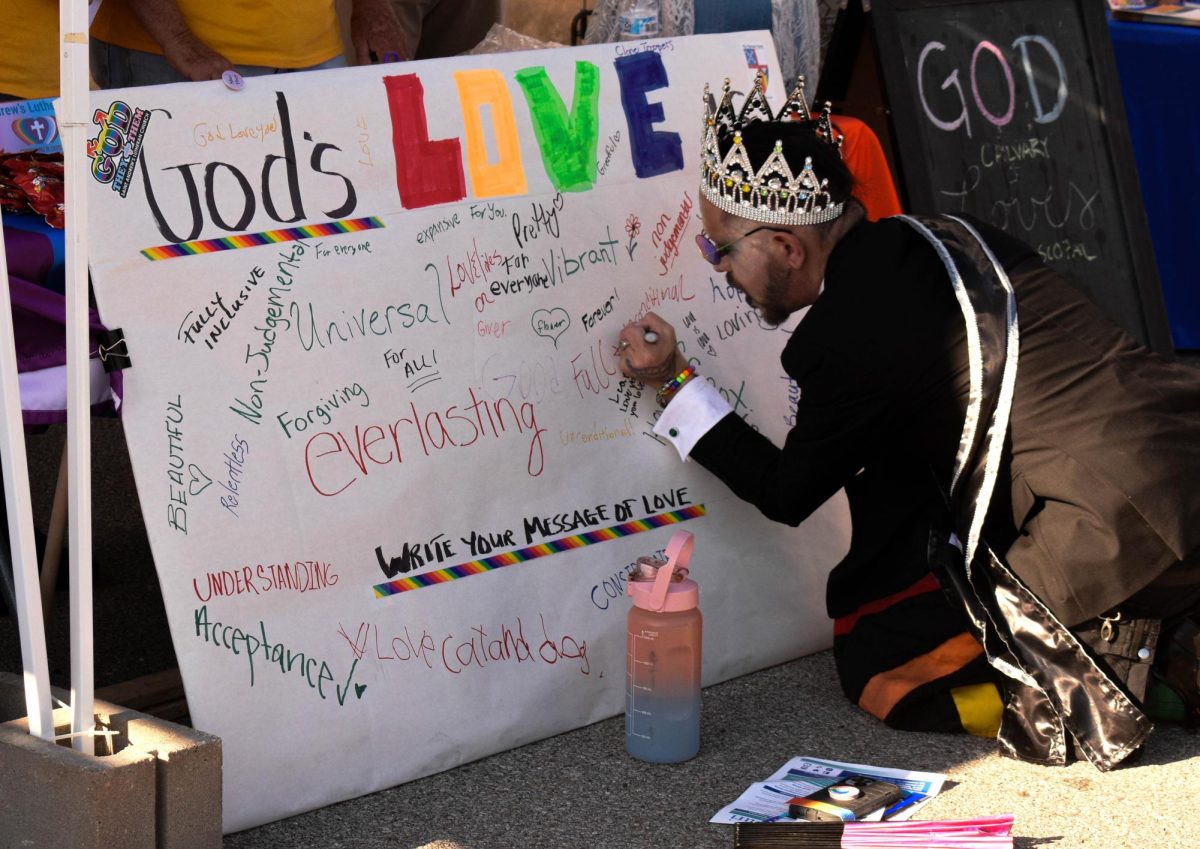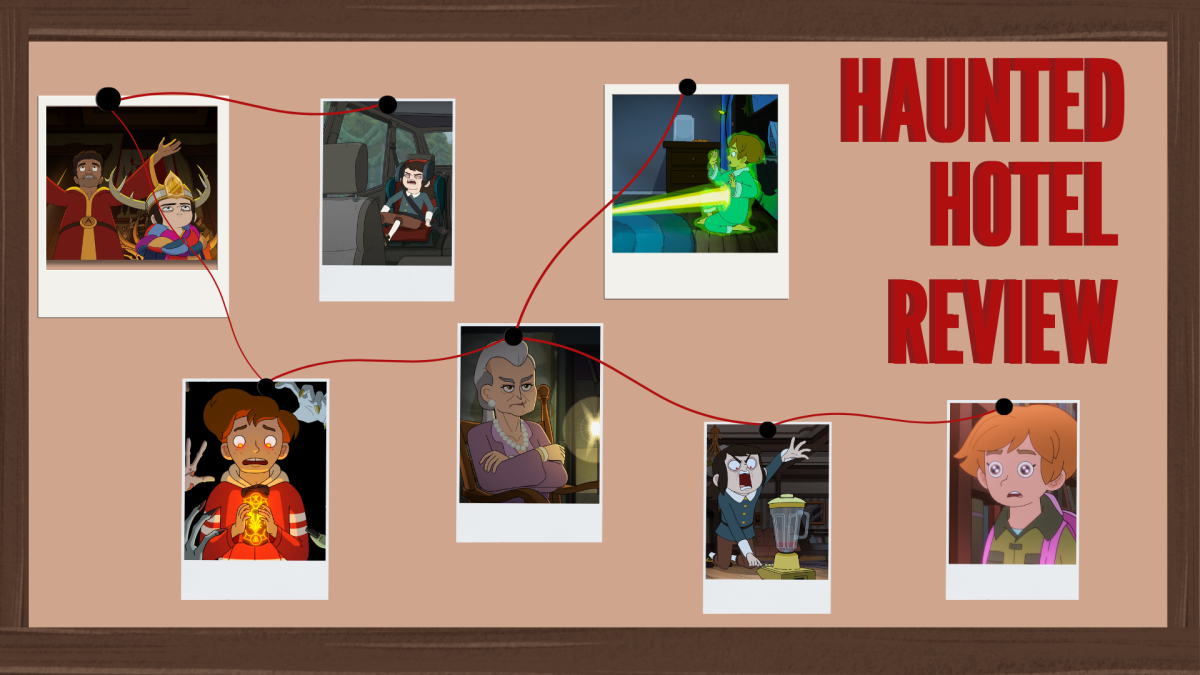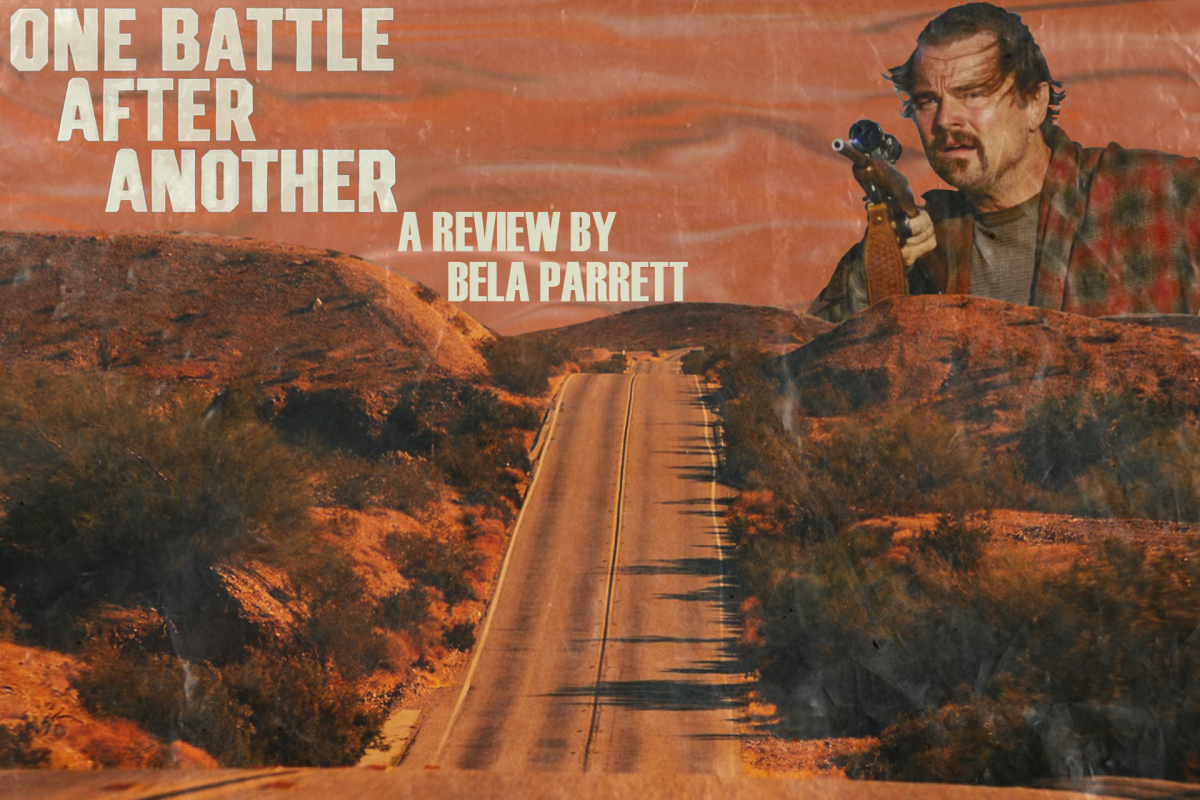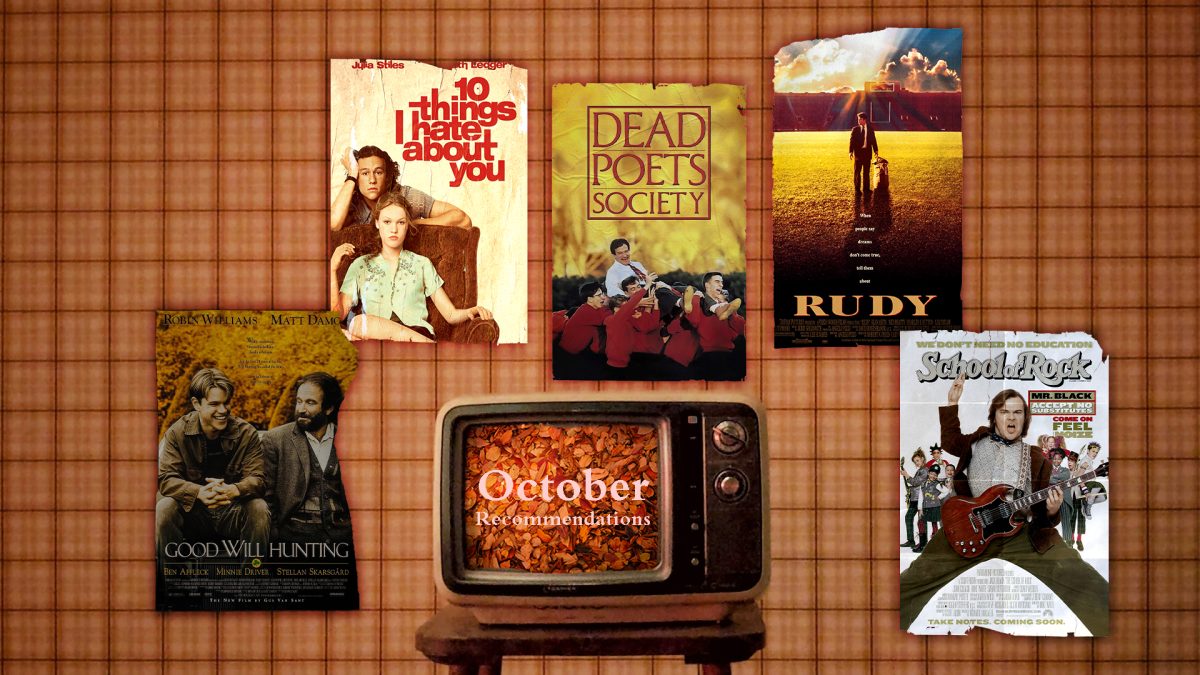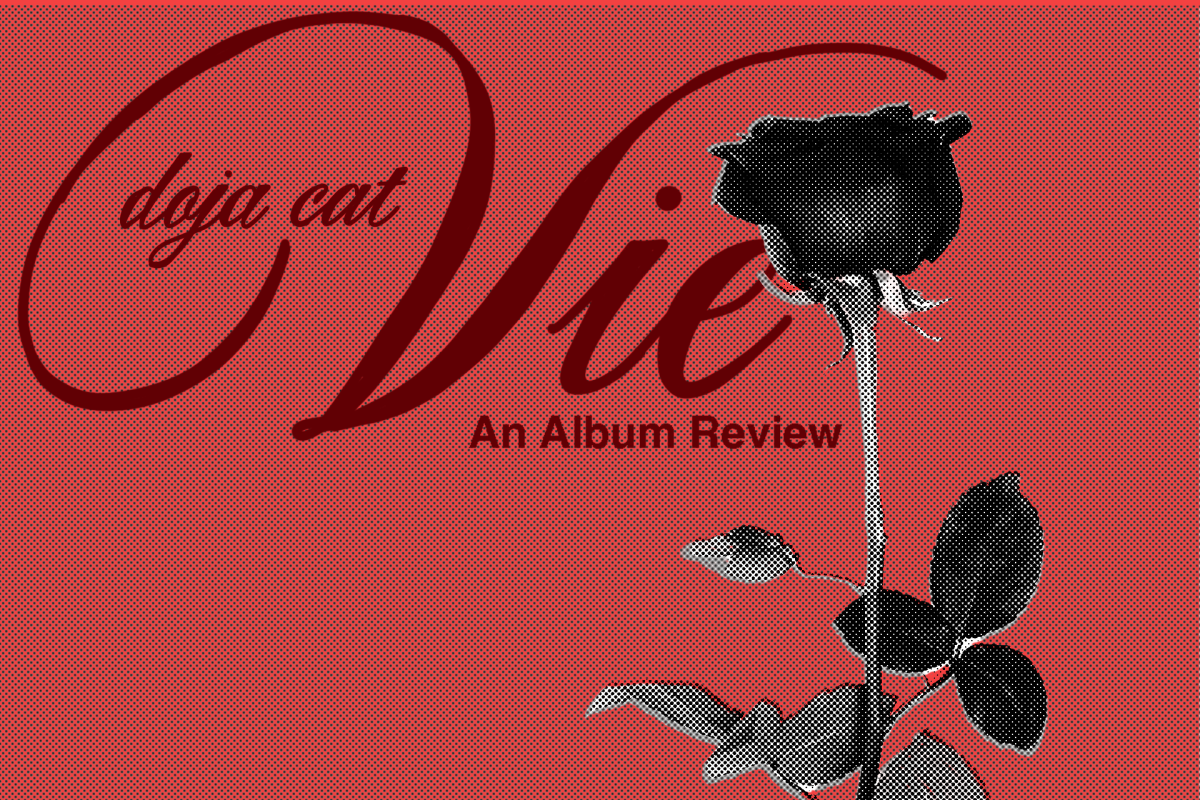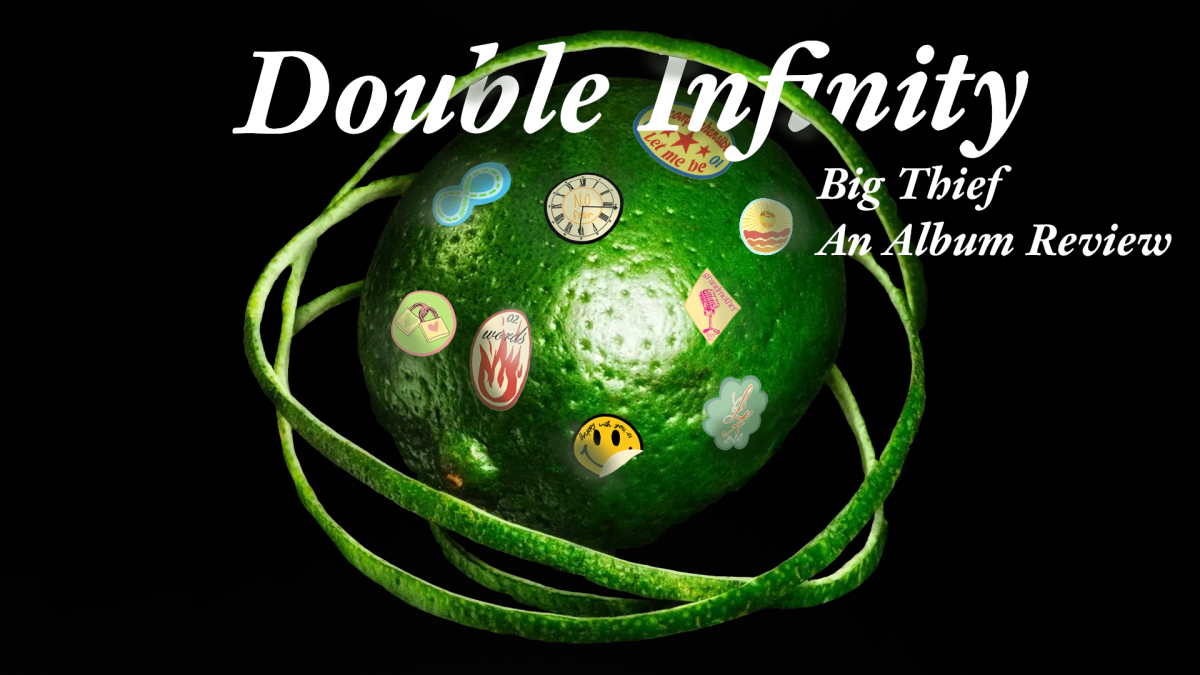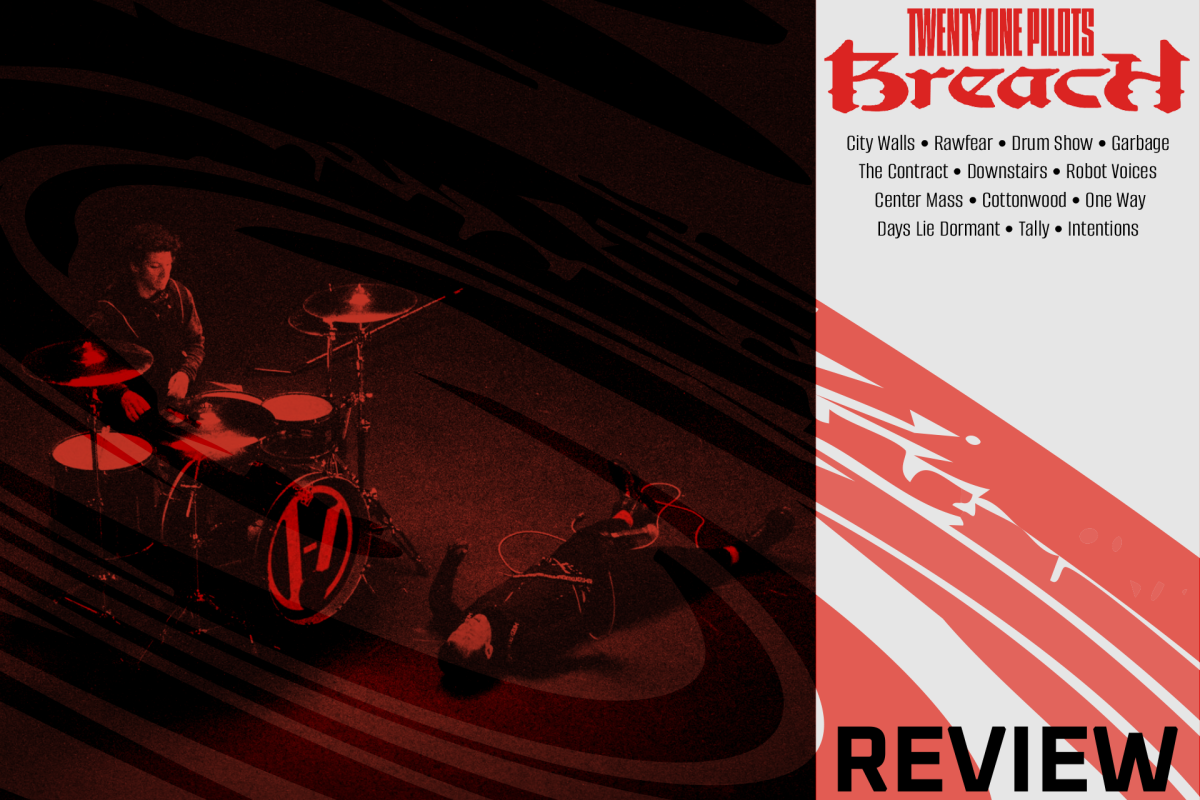Director Elizabeth Mirzaei shows a young Catholic woman prioritizing her faith and abandoning a secular life, despite her doubts.
Oscar-nominated director Elizabeth Mirzaei’s film follows a young woman named Natalia as she decides whether or not to become a nun, clinging to her faith while coming to terms with all she has to lose.
“Natalia,” shown at the 2023 True/False Film Fest, is simultaneously inspiring and depressing — an honest exertion that a faith-based life cannot come without extreme sacrifice. This black-and-white documentary masterfully utilizes natural sounds and sunlight to draw the viewer into Natalia’s raw and authentic world.
“I always saw this film in black and white,” Mirzaei said during a Q&A at the Fest. “I feel like I didn’t experience it in color.”
The film begins with interview footage of Natalia, though it soon becomes clear that she is speaking to God, not the person behind the camera. In an early scene, Natalia explains to a crowd why she is struggling with the prospect of nunnery.
“I really love men, and I really love babies,” she said with a laugh.
Natalia’s desire for a family is incongruous with the lifestyle of a nun as nuns pledge lifelong celibacy, but this is the most straightforward her conflict ever appears in the film. Nuns are also expected to renounce their worldly possessions, study the Bible and obey God and their religious leaders. As the film continues, Mirzaei relies on Natalia’s expressions and brief pieces of dialogue to catalog her internal struggle.
The filmmakers were able to rely on such dialogue because of Natalia’s powerful voice. As Mirzaei and producer Omar Mullick discussed in the Q&A session, much of a documentary’s success comes from finding a subject at the right time. It is impossible to look away from Natalia as she wrestles with her faith in God and tries to decide if she will devote her life to him.
Mirzaei highlights Natalia at her most vulnerable, often filming her side profile as she speaks and weeps. Natalia is inexplicably likable, perhaps due to her unwavering honesty or the ease with which she smiles and cries. She is simultaneously holy and completely human: a lover of God and of Star Trek.
The only elements of the film that feel briefly artificial are the sequences in which Natalia abandons photos of her secular life in the wilderness. The close-ups of her photos blowing in the wind or covered in sand at the beach are slightly too artsy to be believable. Mirazei explained that these sequences were “collaborative” between her and her subject, which is perhaps why they feel more directed than natural.
The film moves along quietly and slowly, and watching it becomes a form of meditation. Pop music is only incorporated in the few scenes when Natalia is listening to it in her car or through her headphones. This choice keeps the film separate from popular culture, emphasizing Natalia’s isolation from her peers.
Natalia eloquently articulates her internal struggle with peers and mentors, but Mirzaei cuts these scenes short, leaving the viewer with a sense of uncertainty. She describes her faith wavering, as she doubts whether God will truly satisfy her in a life without a husband or children.
There is no single moment where Natalia decides to commit to being a lifelong nun. Instead, her decision is implied through many small actions. The viewer watches Natalia suffer and then begin to plan the ceremony where she will profess her vows. The day of the ceremony is the first time Natalia’s hair is shown and the day it is cut. Her friends, family members and sisters look at her with a combination of reverence and pity, as she ends her old life and commits herself to God.
“It’s really a film about death,” Mirzaei said. “The death of self, which is something that is really foreign in our culture … What does it mean to walk away from the world and to leave everything behind?”
Edited by Savvy Sleevar | [email protected]
Copy edited by Grace Knight


